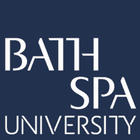About BA (hons) Early Childhood Studies in Bath Spa University
On this course, you’ll develop a critical understanding of childhood, babies, children and families from multi-disciplinary perspectives. You’ll examine issues in local and international contexts and explore concepts such as play, development, ethics, social justice and leadership.
We ensure that you have maximum flexibility on your course while still retaining a clear focus on the study of early childhood. Your modules are designed to provide you with essential knowledge and understanding for your future career such as ensuring you are well-versed in children’s rights and protection as well as developing insights into effective teamwork.
You might also apply for our Certificate in Global Citizenship or opt for a module that includes a study visit or international placement.
You’ll gain knowledge and understanding of:
- Social, cultural, historical, political and economic contexts of early childhood
- Approaches to working with babies, young children, families and communities
- An understanding of global issues and debates, such as young children as active participants in the lives and practices of families, societies and cultures
- The processes which shape early childhood and young children's lives, including ethical principles and children's rights
- Educational research and enquiry methods
- Skills which support participation, critical engagement, and intellectual independence.
In addition to this, you’ll gain skills that will make you attractive to employers. You’ll learn to present your ideas confidently in a variety of forms, use ICT for various professional purposes and work collaboratively.
Work placements, industry links and internships
Placements occur in each year of the programme. In year two there is an extended placement in an early childhood setting which spans over two modules. This enables you to collect practice-based evidence for the accredited vocational qualification ‘Early Years Educator’.
Optional modules provide further placement opportunities for you to work with young people both locally and internationally. The Institute for Education Partnership Office will arrange each placement for you. We try to ensure you are located within a reasonable distance from where you live; however, you should normally expect to travel using your own or public transport.
Previous students have also worked with charities, youth centres, and third-sector organisations such as museums, as well as schools and early years settings.
Careers
Early Childhood Studies will provide the basis for you to work with young children in different early years settings and contexts. You may choose to work in educational and training advisory roles in a range of organisations including local community, businesses, local authorities, non-government organisations and charities, museums, art galleries and libraries.
You’ll also be able to apply for PGCE courses in teacher training – but if you know at this stage that you want to be a teacher you should consider our early years specialised teaching pathway.
Academic qualification equivalents
- Higher Secondary School Certificate/Indian School Certificate (standard XII) from the following boards CBSE/CISCE/WBCHSEB, with 65%, including grade C in at least five subjects.
English language requirements (one of the below):
- IELTS:Academic 6.0 overall This must include a minimum of 5.5 in Listening, Speaking, Reading and Writing.
- TOEFL iBT: A total of 72, to include a minimum 18 in Reading, 17 in Listening, 20 in Speaking, and 17 in Writing.
- PTE: This must include a minimum of 51 in Listening, Speaking, Reading and Writing.
Bath Spa University Highlights
| Type |
Public |
| Campus Setting |
Urban |
| Tuition Fees for International Students (full-time degrees in 2020-2021) |
13,700 GBP - 15,300 GBP (varies with the courses) |
| Campus Housing Capacity |
25% |
| Student Retention Rate |
89% |
| Scholarship Availability |
Yes |
| Applications Accepted |
Online |
| Work-Study |
Available |
| Intake Type |
Yearly |
| Mode of Program |
Full time and part-time |
Bath Spa University Average Tuition Fees And Other Expenses
International students joining the Bath Spa University are required to pay 70% of the tuition fees on or before arrival and commencement of the course. All payments should be made in £ sterling and the easiest way to make a payment is via Flywire. However, the payment can also be made through credit/debit card.
International students should open a UK bank account as soon as possible after arrival.
The estimated cost of attendance depends on several factors like the program applied for, tuition, books, fees, housing, dining, and personal items.
| Expenses In GBP |
Undergraduate (per annum) |
Graduate (per annum) |
| Tuition Fee for International Students (full-time courses) |
13,700- 15,300 (varies with the field of study chosen) |
13,700- 15,300 (varies with the field of study chosen) |
| Career and Professional Development Fees |
145 |
145 |
| Housing and Rooms |
8,412 |
8,412 |
| Health Insurance |
150 |
150 |
| Books and Supplies |
500 |
500 |
| Meals |
3,225 |
3,225 |
| Personal Expenses |
792 |
792 |
